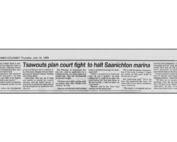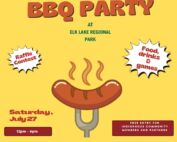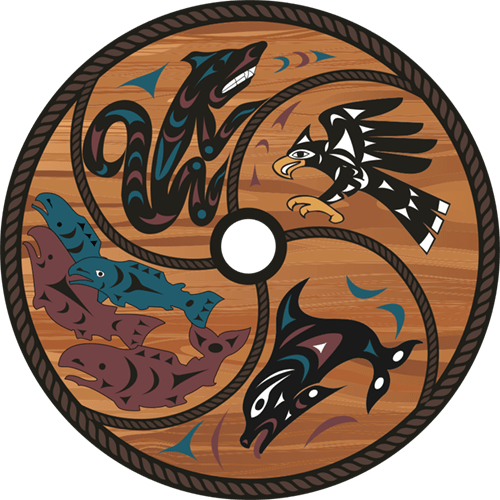Meet the Youth Reef Net Team
Learn more about the Youth Reef Net Workers and the work they’re doing. Click play to view the short video, or read the transcript below.
Interviewer: Can you tell us a bit about who you are and where you’re from?
Kristin Morris:
Hi, my name’s Kristin Morris, and I’m from Tsartlip First Nation.
Edna Elsworth:
My name’s Edna Elsworth. I’m from Tsartlip First Nation as well.
Layla Morris:
My name is Layla Morris. I am also from Tsartlip First Nation.
Desiree Jones:
My name is Desiree Jones and I’m from Pauquachin First Nation.
Julia Settler:
I’m Julia Settler and I’m from Nanaimo First Nations and also Tsawout.
Darian Claxton:
Hi, I’m Darian Claxton and I am from Tsawout First Nation.
Jacob Lazar:
My name is Jacob Lazar and I’m from Sauk Nation and Tsawout First Nation.
Trevor Horne:
I’m Trevor Horne from Tsawout.
Landon Underwood:
Hi, I’m Landon Underwood from Tsawout First Nation.
Interview: Can you tell us about the Reef Net Program?
Edna Elsworth:
So, the Reef Net program is a revitalization of the traditional Reef Net technology. And what it means to me is that it’s bringing back our old ways of being, and it’s incredibly important to our community.
Layla Morris:
Because it wasn’t only a way of fishing, it was a way of life for our people. And what it means to me is being able to bring our way of life back to our communities for our elders, and for our ancestors, and for the youth as well.
Landon Underwood:
And it is being youth led. So, all of us youth that have worked together through the past three years. We hope to be able to go back to the community and show people what we’ve been able to learn, because it’s a pretty big thing. And I don’t think people kind of realize it.
Darian Claxton:
I think the Reef Net project is just an amazing learning opportunity. I’m very excited to be a part of it. I’m also very excited to see where it takes us in the future. And I hope that all of us can pass on the knowledge that we are learning.
Interviewer: What are some of the takeaways you’re getting from working at the Reef New Program?
Trevor Horne:
It’s pretty exciting. You get to learn new things from different people.
Desiree Jones:
I think it’s really important work that has been a long time coming for our communities and kind of echoing what Edna and Layla were saying that it’s a way that we governed our communities. So, it’s more than just fishing. And also with this work, I think it’s exciting too, cause it’s also bringing community closer together and hopefully being able to connect with other communities across the border like it was pre-colonization.
Jacob Lazar:
It’s really exciting to me. When I found this job, I just thought would be really exciting to do and meet new people and bring back our culture that we lost how many years ago. And also, my great uncle did Reef Net in Sauk, so really excited to do this and try and make him proud.
Julia Settler:
I just think it’s like a reawakening of the Reef Net. I hope we can extend it to our future generations. I think it’s awesome. We get to learn all of this all over again.
Desiree Jones:
I think for me, it’s just given me a better understanding of how educated our ancestors were about the land and the waters that we live on. I’ve learned a lot of the indigenous science that has been put into the strategies of Reef Net fishing and how complicated it really is. So actually, being out on the water and trying to set the net and trying to learn the net with even all the technology that we have today. It just kind of goes to show how smart our ancestors were.
Landon Underwood:
Cause when we’re out on the field, trying to figure things out, making our lead, making our nets, sometimes we’re kind of sitting there scratching our head, like how the heck did they do this? It’s a really good feeling though, being out there and being able to do this for other generations to continue in our footsteps.
Jacob Lazar:
I think the best takeaways, probably just meeting everybody and doing everything as a team.
Trevor Horne:
Like learning how to take the net out and put it back in.
Kristin Morris:
It’s really cool learning about the origin story of how Reef Net came to Saanich, and how we gained that knowledge.
Layla Morris:
I think coming to more of an understanding of how much our ancestors were one with the land and each other. Not so much just nation to nation because it wasn’t so divided back then. We were all sort of one on this island and over into what is now the United States. So just coming to more of an understanding, how we all worked as one and worked as a team with the land and with each other.
Edna Elsworth:
My biggest takeaway is learning how beautiful and intricate our technology was and how intelligent our ancestors had to be in order to be successful in that regard.
Desiree Jones:
This technology has been around for probably hundreds and thousands of years, that our ancestors accumulated over doing it every year to provide for the communities. And with it being outlawed for almost 100 years, we’re kind of starting in a place where I feel we’ve lost some of the knowledge and we’ve been able to of carry this out through our elders and our knowledge holders. We’re continuously learning about the net and it’s a lot of trial and error that we go through. We’re constantly improving, working on things that we might have not noticed the year before or learning new things about the net. So, it’s a continuous cycle of just learning more about it.
Interviewer: What’s been different about this year than the previous two years?
Landon Underwood:
This year what’s different from the previous two years, in our first year, we were in talks of hopes to being able to connect with Lummi across the border. But at the time of our first year, it was during the peak of COVID. So, we weren’t allowed to be going across the borders. We weren’t really allowed to be around each other. So that first year was pretty difficult. This year, I was able to go over and meet with somebody by the name of Troy Olsen in Lummi. They’ve been a pretty big help. I think that’s, what’s going to contribute to this year, that we had our relatives over on the border side there.
Layla Morris:
I feel like, with this project specifically, because this has never been done before, especially by youth, we’re out every single day, we’re learning new things. Every single day is unexpected. We never know what we’re going to do that day and what we’re going to learn that day. Each year, it’s almost like the program is entirely new. Us people that have been here all three years have all grown so much in these past three years as well alongside the program.
Interviewer: What were some unexpected or exciting moments from working on the Reef Net Program?
Edna Elsworth:
One thing that I didn’t necessarily expect to happen, though I’m not surprised, was how close we all came together, and how much it feels like a family, and how well we all work together.
Darian Claxton:
From what I’ve seen so far, we work really well together as a team and we have very clear communication, which really helps when we are trying to problem solve together. And that’s been really nice so far.
Desiree Jones:
Just kind of echoing what everybody else said, just how close it has kind of brought us together. And even just the communities and hopefully being able to connect with other communities across the border who also practice Reef Net fishing and just kind of bringing communities together, you know, regardless of the border line that’s there.
Julia Settler:
I think just the exposure to all the knowledge, everyone’s different viewpoints. It was nice to see. It was just exciting to come into something so new.
Landon Underwood:
The exciting part is being able to do it again. I’m hoping we can keep continuing to do this, and it’s not just a three-year program here. We are taking a big step in the right direction with what’s happening here, and I don’t think people realize it enough. Especially being youth led, I think it’s something not too many people have probably seen before.
Interviewer: What are some things you want the community to know?
Edna Elsworth:
What I want community to know, and what I want to share with the community, is just how important it is to bring back this technology and how important it is to us, for us to be able to do that.
Layla Morris:
I also just want to say to the community, yes, it is important to get this back to our people because it has been outlawed for so long. But it is especially important because it is youth led and we are, as youth, bringing this back to the other youth in our community who don’t have the privilege to be in this program right now. We are very much so privileged to be able to learn all of this knowledge that we’re learning
Desiree Jones:
Also, how important it is to continue on the revitalization of the Reef Net, so future generations can be able to have this knowledge and just have it to be a legacy and keep carrying on.
Edna Elsworth:
For me personally, I would love any chance to be able to share with the community about what it means to be in this program and what it means to bring back this technology and what it means to carry on that knowledge.






